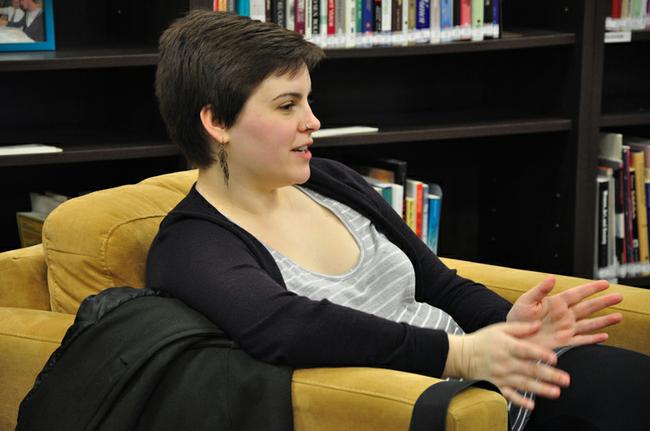Whether by taking a women and gender studies class or joining a student organization, MU students have found ways to express their beliefs about feminist views.
“My decision to become a feminist was gradual, for sure,” Feminist Student Union President Caitlin Coyne said. “I have always believed in equality and compassion, but it took some time for me to recognize the ideals I held were the same as feminist ideals. It’s when I realized how parallel my thoughts were to the feminist movement that I decided to identify as feminist.”
The Feminist Student Union is one of many resources for feminist students on campus. According to its website, FSU’s main goal is to “promote issues such as ending the gender wage gap, reproductive freedom, and equality in all areas for men and women.” The organization meets the second and fourth Mondays of each month, discussing issues facing feminism and brainstorming ways to promote gender equality on campus and throughout the country.
“My favorite thing about being a feminist is the tight-knit community it provides,” Coyne said. “You can speak openly within feminist circles where you might not be able to do so with other people.”
Graduate student Jessica Berry said though she enjoys identifying as a feminist there can be some frustrations when going against the norm.
“Any educational institution is like a hierarchy,” she said. “So, I’d say the biggest challenge is existing in a hierarchy not believing in a hierarchy. Working and/or studying within an institution, giving them a power that I don’t agree with. We are trying to make so many changes, while breaking rules established for Mizzou in the process, yet we still follow them.”
Coyne said reaching out to students about joining FSU is also a difficult process.
“What I find difficult to being a feminist at Mizzou is finding new people to reach out to,” Coyne said. “It’s easy to find like-minded people, but it’s difficult to reach out to other communities on campus that might not consider feminism a priority or even anything to consider.”
One main goal in finding new like-minded individuals is to clear up stereotypes, Coyne said.
“Mizzou students have misconceptions about feminists that pretty much everyone else everywhere does,” Coyne said. “Many think that we’re going to turn all the children gay, burn down some churches and feast on aborted fetuses.”
Coyne and senior Paul Reeves said in order to recruit like-minded people to their community, misconceptions need to be cleared first.
“The biggest (misconception) is that we hate men,” Reeves said. “We don’t hate men. We hate privilege and patriarchy. We have a widely diverse set of experiences, identities and opinions that help us find a common goal.”
Another misconception, Reeves said, is that all feminists are female.
“As a gay man, I experience discrimination every day,” he said. “When you see that these themes of discrimination also apply to one’s gender, race, class, how can you not want to fight against the power structures and societal expectations that cause inequality? Feminism isn’t just about equality for women. It takes all these identities into consideration. I also think the world needs more male feminists. Society’s strict standards affect us as well.”
Coyne said she hopes more diverse education will open society’s eyes to the truth about feminists.
“Since popular culture likes to paint feminists as man-haters, most people think we are because they don’t know better,” she said. “Better education will hopefully lead to these misconceptions ending.”








